María Ángeles Rodríguez Arango, scholar of Spanish sports literature
María Ángeles Rodríguez Arango, scholar of Spanish sports literature
Jesús Castañón Rodríguez
“Such joy and happiness you bring
Like a dream
A guiding light that shines in the night
Heavens gift to me”
Joe Cocker
July 2015 saw the passing away of María Ángeles Rodríguez Arango (Villavaler, 1931-Avilés, 2015). A Professor of Spanish Language and Literature, she held a degree in Romanic Philology from the University of Oviedo with Summa Cum Laude and a PhD in Romanic Philology from the Complutense University of Madrid with the thesis Toponimia de la parroquia de Villavaler, supervised by Rafael Lapesa who was director of the Royal Spanish Academy between 1987 and 1988.
Her teaching career was linked to the universities of Oviedo, Santiago de Compostela and Valladolid in addition to various schools in Soria, Cartagena and Palencia.
She participated in research projects on travel books on Castile and León and Spanish language and her work includes an edition of Poema del Mío Cid and books and articles on textual analysis, dictionaries, elements and structure of contemporary poetry of the twentieth century, authors and movements of contemporary poetry in Palencia, zoonyms of Palencia, as well as monographic studies and conferences on minstrels, Gabino Alejandro Carriedo, Alejandro Casona, the Marquis of Santillana, Arturo Medina, María de Molina, children’s and young people’s literature and sports literature. They appeared between 1954 and 2004 in the publications: Afanes del Magisterio, Boletín de la Universidad Compostelana, Boletín del Instituto de Estudios Asturianos, Castilla: Estudios de literatura, Diario Palentino, Idiomaydeporte.com, Ínsula, Jesuscastanon.com, Lecturas: Educación Física y Deportes and Publicaciones de la Institución Tello Téllez de Meneses.
Furthermore, between 2001 and 2011 she selected texts by Jesús Castañón Díaz for the poetic anthologies A propósito de octubre, Hojas de Luz, Veinte otoños and Estaciones de plata published in Palencia by the literary circle Tertulia El Saloncillo de las Cuatro Estaciones.
The legacy of her work reached 2015 via various routes. First, in books on poetry dedicated to Gabino-Alejandro Carriedo, Alejandro Casona, Ángel Crespo, José María Fernández Nieto, Jorge de Montemayor, the post-war poetry of Palencia and avant-garde literature of the twentieth century. Second, in the scientific publications Atenea, Bibliotheca Hispana, Boletín del Instituto de Estudios Asturianos, Bulletin Hispanique, Hispania, Historial Abstracts: Modern History Abstracts (American Bibliographical Center), Índice Histórico Español, Norte, Revista de Estudios Extremeños, Revista de Literatura and Sigismundo. Third, in databases such as Regesta Imperii, specialised in the history of Mediaeval Europe, and Mujeres asturianas destacadas which was developed by the Asturian Institute for Women and the Department of the Presidency, Justice and Equality of the Government of the Principality of Asturias. Fourth, in the Gran Enciclopedia Asturiana. Fifth, in histories of education in Galicia such as the volumes De Escola Normal Superior a Escola Universitaria (1849-1996) and Mulleres na educación en Galicia. And sixth, in histories of literature such as Poesía española de 1935 a 1975. De la poesía existencial a la poesía social, 1944-1950, by Víctor García de la Concha, and Historia de la literatura española, by José María Martínez Cachero, María Teresa Caso, José Miguel Caso, Ignacio Arellano and Jesús Menéndez.
Sports literature: teaching and research profile
Keen on the televised broadcasts of the great cycle tours, occasional attendee at football matches in Madrid and Asturias and a regular visitor at all kinds of sports museums, during the 1990s she created subjects and courses, published several studies in book form and in digital format, as well as forming part of the founding team of Idiomaydeporte.com.
She developed her teaching career at the Education Faculty of the University of Valladolid by highlighting the growth of sport in the new literature of the consumer society, as well as including in the curricula the optional subject Literature and sport from 1995 to 2001 and the PhD course Literature with a sports theme between 1998 and 2001.
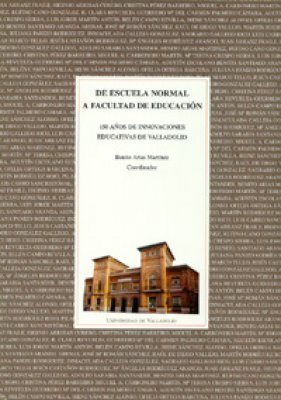
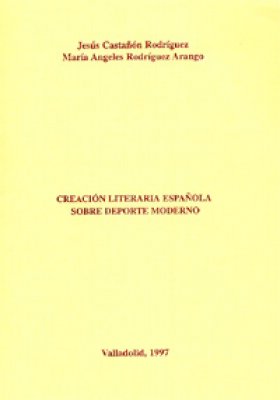
Between 1993 and 1999, her research on the study of sports literature is recorded in the article «Transformación de los géneros literarios en la sociedad de consumo», the speech Nuevas formas literarias, the book Creación literaria española sobre deporte moderno, which awakened the interest of the president of the International Olympic Committee, and the studies «Literatura y deporte moderno (1845-1995). Su enseñanza en la Escuela de Magisterio» and «Bibliografía española de creación literaria del deporte».
Her attention was focused on four centres of interest. In the first place, the relationship between literature of this type and teaching. In second place, the reflection on the new literary genres in modern society, in which modern sport constitutes a great domain for epic. In third place, the writing of essays on specialised Spanish literature, providing exhaustive data and information on cultural keys, production stages, preferred genres, statistics and evolutionary trends. And, in fourth place, the compilation of databases for the digital age, to be consulted by authors, on literary genres and sports disciplines.



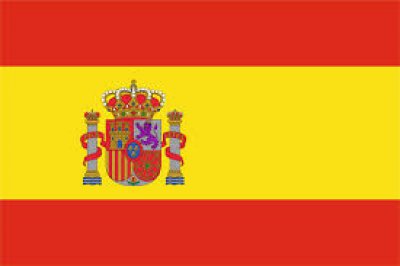
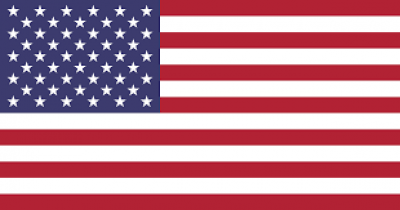

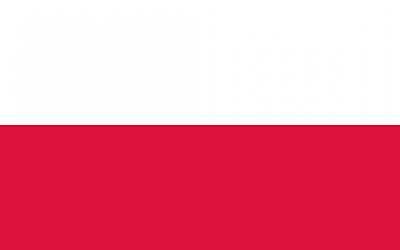
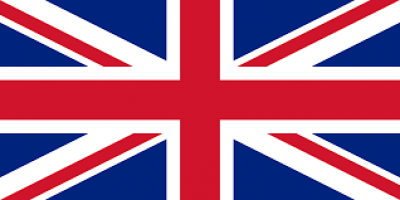
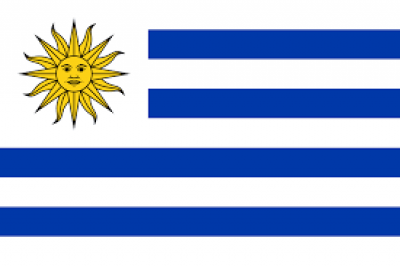
Sporting legacy
The sporting legacy of María Ángeles Rodríguez Arango can be found in libraries in Colombia, Spain and Switzerland. Her works are available to the public at the National Library of Spain, the Library of the Spanish National Sports Council, the José Manuel Rivas Sacconi Library of the Caro y Cuervo Institute of Colombia and the Library of the Olympic Studies Centre of Lausanne.

Capture tab of a book in the catalog of the Library of Consejo Superior de Deportes
Her work was present at the international poetry festival Cosmopoética in 2009, in doctoral theses in Spain and the United States such as Literatura y fútbol: otros horizontes de la literatura en España e Hispanoamérica and The Phenomenon of Fútbol in Spain: A Study of Fútbol in Spanish Politics, Literature and Film. And also, in the academic guides of the PhD course The sports chronical: style and structure, given by the Complutense University of Madrid in 1999-2000, and the subject Language, Literature and their Didactics, at the University of Almería in 2008.
The influence of her work is recorded in books in Italy and Spain, in the volumes Ludus, De igualdad y diferencias: 10 estudios de género and Sporting Cultures: Hispanic Perspectives on Sport, Text and the Body coordinated, respectively, by Gabriele Morelli, Ana María Vigara Tauste and David Wood. And especially, in articles which appeared in 12 publications in 8 countries: Argentina, Brazil, Colombia, Spain, the United States, Poland, the United Kingdom and Uruguay. Specifically: Ágora para la Educación Física, Athlos, Aureo, Hibris, Idiomaydeporte.com, Investigación Educación Física, La Página del Idioma Español, Lecturas: Educación Física y Deportes, I Congreso Internacional Virtual de Educación Lectora CIVEL: libros, comprensión lectora y biblioteca, Romance Quarterly, Studies in Physical Culture and Tourism and The International Journal of the History of Sport.
Epilogue
The review of all the work and of these 27 references by 9 countries in America and Europe allow us to take great consolation in the memory of this scholar of Spanish literature with a sports theme. Above all, during nights of heavy rain, when the moon is covered by mist, to the beat of the rhythmic jazz sound of the song Moonlight Haze or when the stars are bright, singing to the sky You are so beautiful on the shore of the Cantabrian Sea to find moments of happiness.
Bibliographical references
Antón Castro, Xosé: “Arte, corpo e deporte”, Aureo Anuario 2013. Ourense: ESAD, 4 de octubre de 2013, pp. 60-66.
Ashton, Timothy Joseph: The Phenomenon of Fútbol in Spain: A Study of Fútbol in Spanish Politics, Literature and Film. Graduate Program in Spanish Portuguese. Columbus: The Ohio State University, 2009.
– Soccer in Spain: politics, literature and film. Lanham, Maryland (Estados Unidos): Scarecrow Press, 2013.
Castañón Rodríguez, Jesús: “Unamuno y el deporte moderno”, Hibris número 7, Alcoy, enero-febrero 2002, págs. 25-35.
– “María Ángeles Rodríguez Arango: una pionera en el estudio de la literatura deportiva”, Idiomaydeporte.com, 27, Valladolid, 15 de marzo de 2002.
– “Mujer, idioma y fútbol en España (1904-2004)”, Lecturas: Educación Física y Deportes número 107, Buenos Aires, 3 de abril de 2007.
– “La vivencia artística del fútbol entre la poesía y el tango”, Festival Internacional de poesía Cosmopoética, Ayuntamiento de Córdoba, 25 de marzo de 2009.
– “Mujer y deporte. Evolución de la presencia femenina en el fútbol español”, en Vigara Tauste, Ana María (Coord.)De igualdad y diferencias: 10 estudios de género. Madrid: Huerga Fierro, 2009, págs. 167-197.
– “La dimensión deportiva de Miguel de Cervantes”, La Página del Idioma Español, Montevideo (Uruguay), 1 de marzo de 2010.
– “La literatura deportiva y el fomento de la lectura”, I Congreso Internacional Virtual de Educación Lectora CIVEL: libros, comprensión lectora y biblioteca, Málaga, 14 de marzo de 2011.
– “Aportación y vigencia de las ideas de Antonio Gallego Morell sobre literatura de tema deportivo”, Investigación y Educación Física número 2, Instituto Cultural Argentino, Villa Mercedes, 1 de diciembre de 2012.
Castañón Rodríguez, Jesús y María Ángeles Rodríguez Arango: «Literatura y deporte moderno (1845-1995). Su enseñanza en la Escuela de Magisterio», en Benito Arias Martínez (coord.) De Escuela Normal a Facultad de Educación, 150 años de innovaciones educativas en Valladolid. Valladolid: Universidad de Valladolid, 1998, págs. 129-144.
– Creación literaria española sobre deporte moderno. Valladolid, 1997.
– «Bibliografía española de creación literaria del deporte», Lecturas: Educación Física y Deportes número 13, Buenos Aires (Argentina), 24 de marzo de 1999.
Díaz Zuluaga, Luis Alejandro: Literatura y fútbol: otros horizontes de la literatura en España e Hispanoamérica. Tesis doctoral. Barcelona. Universitat Autónoma de Barcelona, 2014.
Guimaraes Botelho, Rafael: “La literatura infantil en el área de educación física: algunas consideraciones acerca de su olvido”, Ímpetus, 7-2, Universidad de Los Llanos, Villavicencio, Meca, 2013, págs. 15-25.
– “La literatura infantil en Brasil y en España, análisis de 150 libros relacionados con la Educación Física y el Deporte”, Athlos: Revista internacional de ciencias sociales de la actividad física, el juego y el deporte, 6, Madrid, 2014, págs. 25-47
– “Presencia de temas relacionados con la Educación Física y el Deporte en la literatura infantil de Brasil y España: un análisis comparativo”, Ágora para la Educación Física y el Deporte, 16-2, Valladolid, 2014, págs. 137-153.
Jhonson, Louise: “Intellectuals and Physical Culture: An Exercise in Mutual Suspicion”, Romance Quarterly volume 52 Number 2, Washington, Helen Dwight Reid Educational Foundation, 2005, págs. 135-147.
Morelli, Gabriele: Ludus. Valencia: Pre-Textos, 2000, pág. 15.
Rodríguez Arango, María Ángeles: Nuevas formas literarias. Discurso de la ceremonia de Diplomatura. Facultad de Educación de la Universidad de Valladolid, 1 de julio de 1995.
– «Transformación de los géneros literarios en la sociedad de consumo», en María Francisca Calleja (coord.) Didáctica del consumo. Aprender a consumir. Valladolid: Instituto de Ciencias de la Educación de la Universidad de Valladolid y Junta de Castilla y León, 1995, págs. 209-218.
Tamayo Fajardo, Javier Antonio y Rubén Esquivel Ramos: “La historia del deporte cubano en la literatura”, Materiales para la Historia del Deporte. Sevilla: Asociación Andaluza de Historia del Deporte, 2009, vól VII, págs. 77-87.
– “Estrategias e innovación docente en la enseñanza de la historia del deporte”, en I Jornadas Andaluzas de Historia del Deporte. Sevilla: Universidad de Sevilla, 2009, págs.70-84.
Tamayo Fajardo, Javier Antonio y Alberto Nuviala Nuviala, Antonio Fernández Martínez y Rubén Esquivel Ramos: “Sports in literature from Antiquity to Classical Greece”, Studies In Physical Culture And Tourism, 16-4, Poznan, 2009, págs. 441-445.
Wood, David y Louise Jhonson: “Presentation”, The International Journal of the History of Sport 22-2, Pennsylvania, 2005, págs. 133-138.
Wood, David y P. Louise Johnson, J. A. Mangan, Boria Majumdar y Mark Dyerson: Sporting Cultures: Hispanic Perspectives on Sport, Text and the Body. Londres: Routledge, 2009.

